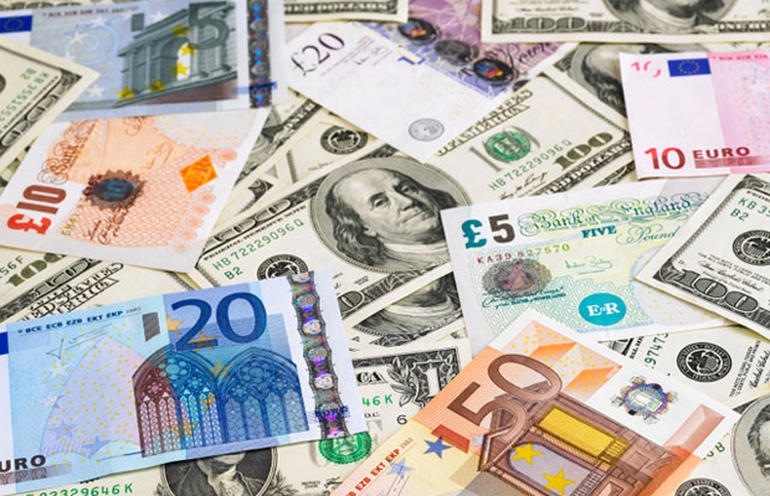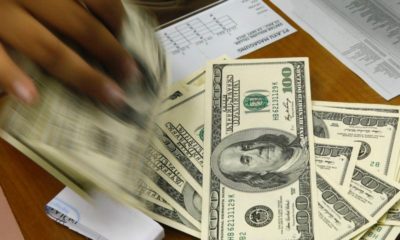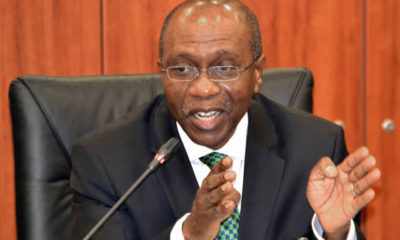Nigeria’s Bankers Committee on Thursday announced that henceforth, authorized foreign exchange (FX) dealers in the country would blacklist customers by placing post-no-debit (PND) on their accounts if they are caught using fraudulent means to procure FX.
This is just as the committee said they have collaborated with the Nigerian Interbank Settlement System Plc (NIBSS) to create a portal where information on FX sales would be shared in real-time to help checkmate arbitrage.
Speaking to newsmen at the end of a meeting, the Group Chief Executive Officer, Guarantee Trust Holding Company Plc, Mr. Segun Agbaje, said the banks are capable and eager to support the Central Bank of Nigeria’s (CBN) FX policy.
He stressed however that as a means of protecting themselves, the banks would sanction fraudulent customers who are duplicitous.
According to Agbaje, “The new FX policy with regards to invincibles, PTA and BTA, school fees and health is working very well. The banks have taken it upon ourselves along with the regulators to make sure this works.
“This is just the first phase and if you notice, most of the things you are doing today you are going into the branches to do most things, but we are also going to try and digitize this whole thing. The way the world is going, an app is being created by NIBBS where you would be able to apply online.
“Today, the NIBBS already has a portal where the banks share information and what we do is to make sure that the rules around being able to apply for PTA or BTA once a quarter by bringing in your ticket are enhanced. With this, we would be sharing your information on the portal.”
On possible penalties for people who may want to defraud the system, he said: “This is very important information because, if we find, as we have started to see, that people are trying to defraud the system, we would capture this on the portal.
“And the banks will report the individuals to the CBN. The likely punishment is that your account would be PND. And if you understand what that means, PND means you would not be able to do anything in the banking system.
“So, while we are committed, this is not for people who want to game the system, this is for people who have genuine needs. And so fraudulent transactions or fraudulent individuals will be reported to the CBN and the portal would help us do this.”
He said advanced countries mostly frown at holding large quantities of cash.
“We are also hoping that all the transactions would not just be cash. The world today is not completely friendly about arriving in countries with cash, so we are hoping people would be able to put this on their cards to use when they travel for medicals, so they are not lodging cash around and fill cash declaration forms when they get into countries.
“We have also examined the nature of things and we believe that most people who would qualify for medical, school fees or BTA and PTA would be people who have banks accounts anyway.
“We are committed to doing this and it is for people who have legitimate needs. We do not want fraudulent transactions taking place in this space and we would continue to make it quicker, faster cheaper and more efficient by digitizing things, putting them in cards and so on.”
The committee also announced progress being made in the ongoing rehabilitation of the National Theatre, Iganmu, Lagos, saying it was on track to meet the 2022 completion target it had fixed earlier.
The committee also promised that local contractors would be given preference during work on the edifice.
In his contribution, the Managing Director, Citi Bank Nigeria, Mrs. Ireti Samuel-Ogbu said: “It is important for the public to know that there would be sanctions when people abuse the system. This is all about ensuring the FX is fairly allocated among legitimate users and we have digital means of being able to determine when people are using fraudulent documentation or wanting to game the system in a way that wasn’t intended.”
Also speaking, the Group Managing Director Access Bank Plc, Mr. Herbert Wigwe said: “Banks have been criticized for not being able to handle PTA and BTA transactions and just to let people know that we would continue to exercise the due diligence required with respect to KYC and compliance.
“FX is a scarce resource, so if we find people coming up with tickets that have expired or tickets that are going to be canceled, or illegitimate passports or people buying more than they are supposed to buy, they will be reported to law enforcement agencies. People should comply with the rules as stipulated by the CBN.”
On the development and completion of the national theatre, he said: “Most of the contract would be awarded sometime in September and we expect that the entire project that is the national theatre and the various verticals should be completed by December 2022.”


 Forex3 weeks ago
Forex3 weeks ago


 Naira2 weeks ago
Naira2 weeks ago
 Billionaire Watch2 weeks ago
Billionaire Watch2 weeks ago




 Naira2 weeks ago
Naira2 weeks ago




 Naira2 weeks ago
Naira2 weeks ago




 Naira1 week ago
Naira1 week ago




 Naira4 weeks ago
Naira4 weeks ago




 Naira3 weeks ago
Naira3 weeks ago













